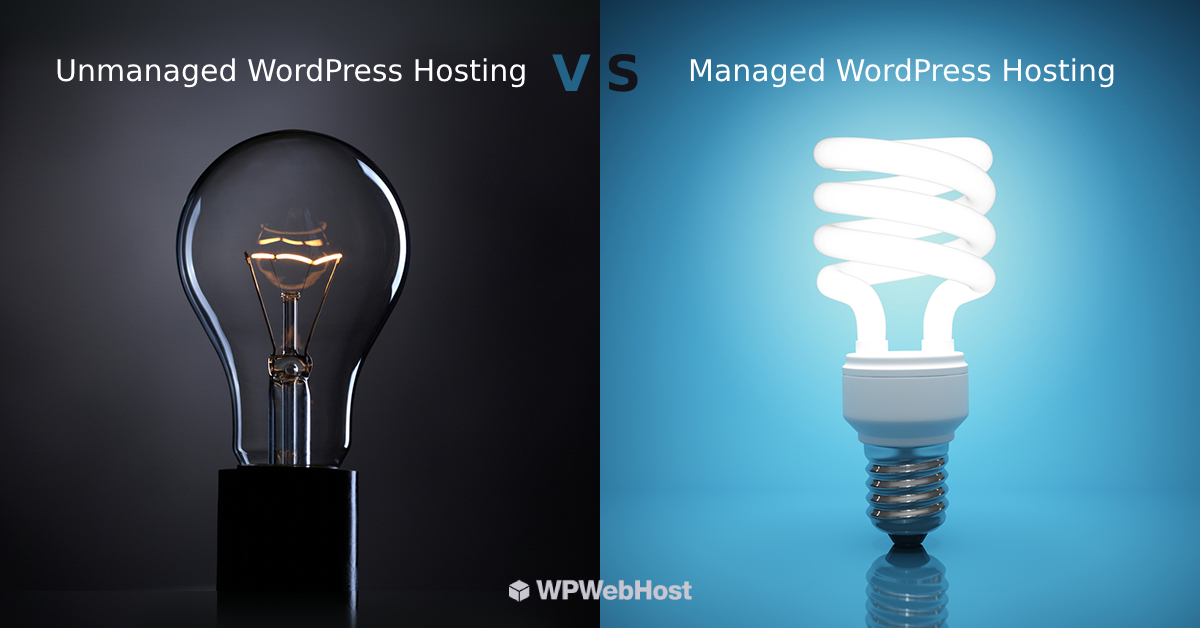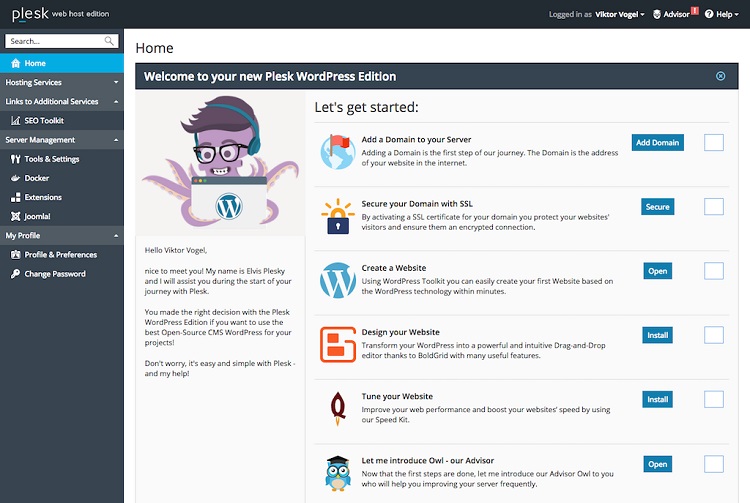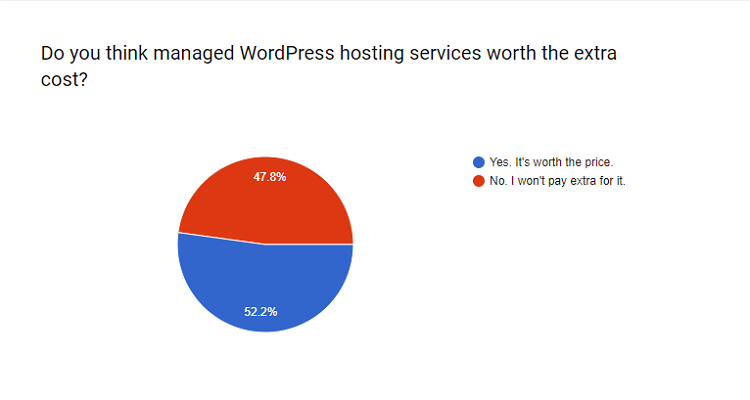
Unmanaged vs Managed WordPress Hosting
The web hosting sphere can be made up of many moving parts and thanks to widespread use, WordPress has had a major influence on the industry. Today, there are many hosts which offer plans that are focused on this extremely versatile and powerful content management system (CMS).
However, aside from the generic moniker of WordPress hosting, did you know that there are two main types? Managed WordPress hosting, although like unmanaged WordPress hosting has certain distinctive differences.
Finding the right WordPress hosting plan can be a challenge, so today I’m going to share some of the differences between the two to help WordPress users make a better-informed decision.
What Is Unmanaged WordPress Hosting?
While the term ‘unmanaged’ may seem like cause for alarm, it simply means that users are responsible for all aspects of the WordPress sites they take up. If you notice that there are many WordPress hosting plans which seem to be priced no differently than the average shared hosting plan – it is likely that that is unmanaged WordPress hosting.
Aside from letting you have the benefit of a pre-installed WordPress instance or access to an easy software installer, unmanaged WordPress hosting plans are essentially no different from most shared hosting plans.
As the site owner, you have the complete responsible of setting up and maintaining your site. This includes performing software updates, adding the right types of security for your site and even doing tweaks to ensure optimal performance.
This might sound like a lot to do, but again, even for shared hosting plans, you would have to perform those tasks as well. You might be asking then, why would I opt for unmanaged WordPress hosting? The key motivator for taking up unmanaged WordPress hosting is the price.
What you are missing out of in terms of service, you are essentially not paying for. As a new site owner just starting out, the money saved here can go to better use, such as investing in SEO tools or as a small marketing budget, for example.
How About Managed WordPress Hosting?
The bar for managed WordPress hosting is higher, but even here there are varying levels of service. This is where you will need to focus if you are intending to take up a managed WordPress hosting plan. Prices for managed hosting can range from between a few dollars a month all the way into the hundreds.
The key difference between unmanaged and managed web hosting plans is that in managed plans, the host takes up the onus of the extra work which I just mentioned above. This means that you only need to focus on your site and its contents – you host handles security, updates and any other technical issues which may arise.
In short; with a managed WordPress hosting plan there are no maintenance issues to be concerned about. These plans often come with helpful features such as automated backups and updates, site security monitoring and the like.

- Caption: Managed WordPress hosts sometimes come with specialized control panels such as Plesk WordPress Edition (Image Source: GitHub)
One advantage which the good managed WordPress hosts have is that they open access to WordPress experts whose knowledge you can tap in to. If there are any technical issues, it is also more likely that technical assistance will be rendered by WordPress experts rather than the usual 1st-level technical support teams which are there for the usual web hosting plans.
Another key item you should keep an eye out for is if there are any specific WordPress optimizations that the host offers. Some may have close partnerships with WordPress optimization tool developers which speed up caching, or even with a Content Distribution Network (CDN) like Cloudflare.
One issue with managed WordPress hosting though is that these plans usually will not allow you root access. To avoid users who are not technically inclined from interfering with server performance, many managed WordPress hosts take on the responsibility that root access users generally handle.
Which Is Right For You?
Now that you are aware of the general difference between managed and unmanaged WordPress hosting, the first question you need to ask yourself is about price. Putting aside technical inclinations, are the user-friendly features of managed hosting worth not just your money, but your time?

- Caption: According to the survey – 52.2% of the users think managed WordPress hosting worth the extra cost.
Personally, I feel that for most site owners, the benefits of going with a managed WordPress hosting plan far outweigh the costs involved. Take for example site owners who are using their site to support or conduct business. The time saved on the site management could much better be spent focused on your core business – earning money through your main business activities.
Rather than taking the time to do updates, implement patches or streamlining for optimal server performance, you could be optimizing your own product lines or planning out new marketing campaigns instead.
As a summary;
Unmanaged WordPress hosting is better off for low traffic volume sites which are largely unmonetized. They are an ideal stepping stone for new WordPress site owners into the field and can be used as part of a familiarization process with the platform.
Managed WordPress hosting is all about convenience and focusing on the best way to run a better website. You can ensure that your time isn’t waster by administrative tasks and go for the big bucks. Best of all, if there are any issues, there is usually a pool of experienced WordPress support staff you can count on for help.
Conclusion
Even as I split these plans distinctly, there are many minor details which can make up WordPress hosting plans offered by various hosts. Almost every host in existence today supports WordPress in one form or another, so you have a wide field to choose from.
In making your decision, my advice will always be to take a step back and remind yourself of why you are looking to build a WordPress site in the first place. Are you looking to learn more about the platform through experience? Or are you looking to run a hassle-free site and focus on your core activities such as content or sales?



